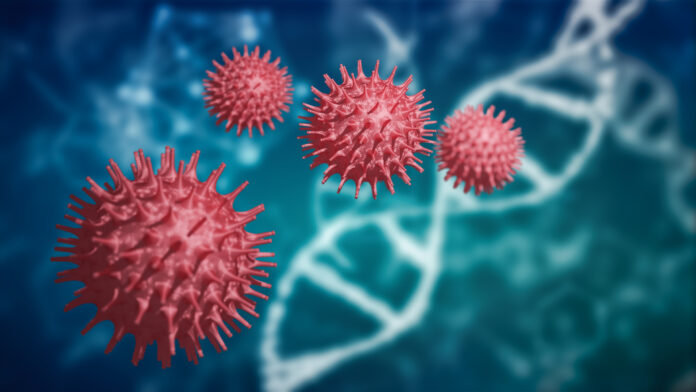A gene known as LZTFL1 doubles the risk of death from COVID-19 in adults under 65 years of age.
The SARS-CoV-2 virus affects people in various ways. While some may remain asymptomatic, others develop a severe infection. Scientists have often wondered the reason behind the virus’s varying effects. Previous studies have shown that people with comorbids are at a higher risk of death from COVID-19. Moreover, the presence of certain metabolic biomarkers can also increase the risk of developing severe COVID-19. Now, a team of researchers at the University of Oxford have identified the gene responsible for doubling the risk of respiratory failure in COVID patients.
The genetic factor we have found explains why some people get very seriously ill after coronavirus infection. It shows that the way in which the lung responds to the infection is critical. This is important because most treatments have focussed on changing the way in which the immune system reacts to the virus.
Professor James Davies, study co-lead
The team, led by Professor James Davies and Jim Hughes, published their findings in the journal Nature Genetics.
Gene Puts Certain Ethnicities at Higher Risk
Previously, scientists had blamed a segment of chromosome 3 for doubling the risk of COVID-related deaths in adults under 65 years of age. However, the exact mechanism and gene responsible for the increased risk remained unclear. Using an artificial intelligence algorithm and newly developed technology, the researchers accurately pinpointed the exact gene responsible. According to the study authors, the gene LZTFL1 affects the cells of the respiratory tract and prevents them from responding to the virus properly. Thus, rendering the ability of the cells to fight off SARS-CoV-2.
Furthermore, approximately 60% of people of South Asian ancestry possess the gene; compared to just 15% of white Europeans. This explains the higher rates of deaths and hospitalizations in certain UK communities and South Asian countries. However, higher deaths have also been observed in black communities but, only 2% of people with Afro-Caribbean ancestry carried the gene. Thus, scientists predict socioeconomic factors might be to blame for the different health outcomes across various ethnicities.
Although the finding is extremely concerning, the higher risk gene did not affect one’s immune system. Therefore, researchers believe that vaccinations will likely benefit these people the most. Furthermore, the identification of the genetic factor means scientists can develop effective treatments targeting the specific pathway and preventing deaths in those at risk.
Reference:
Downes, D.J., Cross, A.R., Hua, P. et al. Identification of LZTFL1 as a candidate effector gene at a COVID-19 risk locus. Nat Genet 53, 1606–1615 (2021). https://doi.org/10.1038/s41588-021-00955-3




